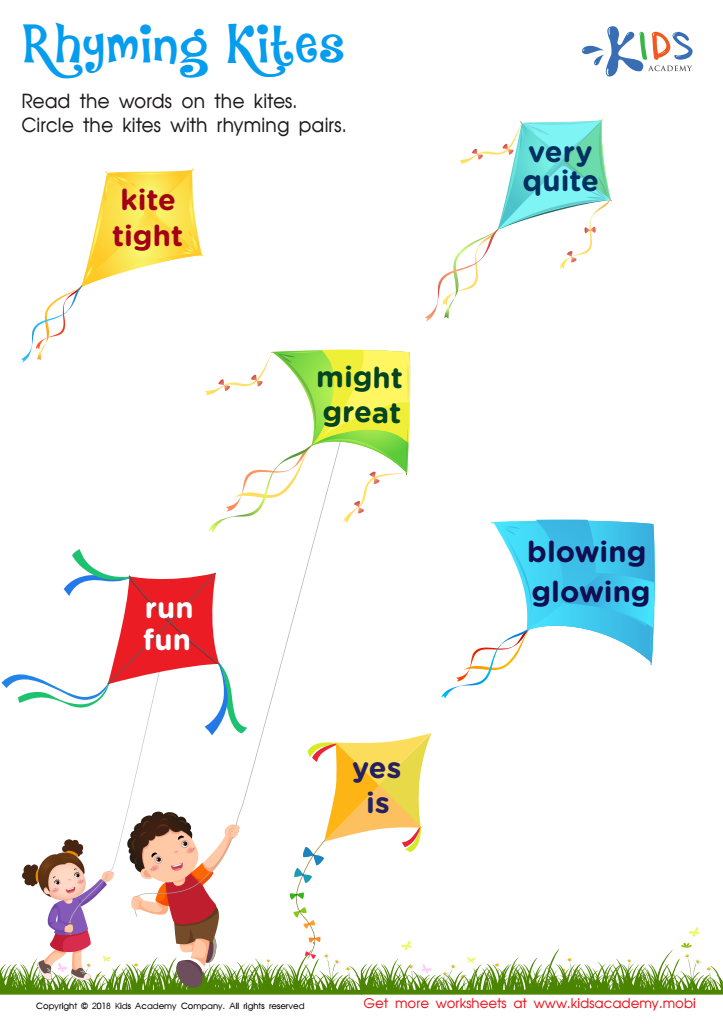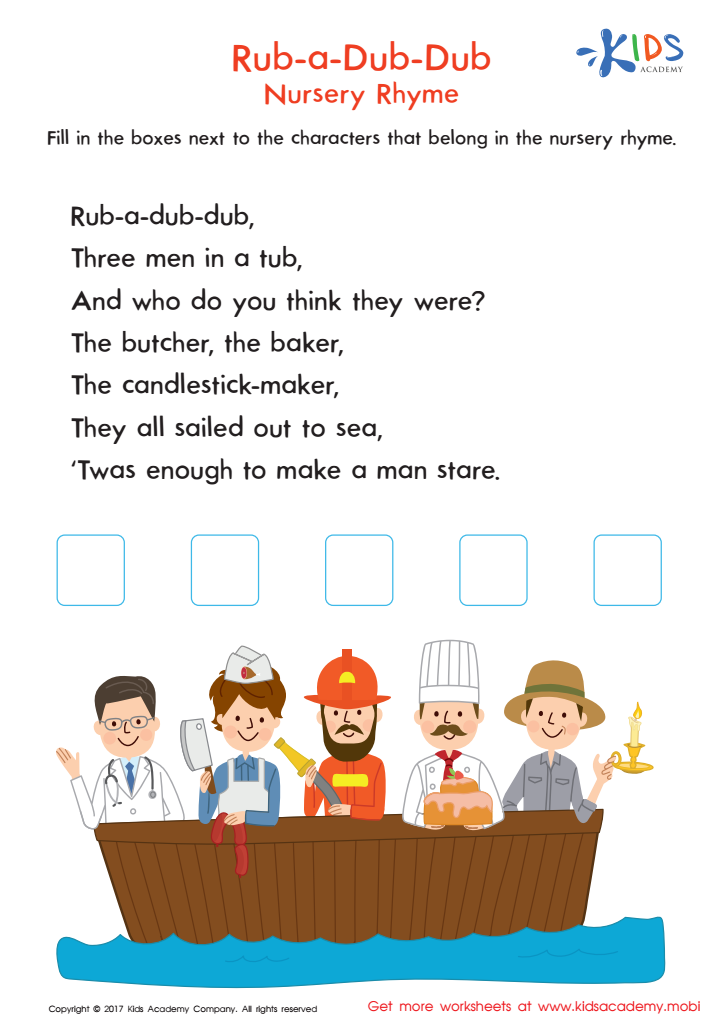Rhyming skills Phonics Worksheets for Ages 6-8
3 filtered results
-
From - To
Enhance your child's reading and language development with our engaging Rhyming Skills Phonics Worksheets designed for ages 6-8. These worksheets focus on building essential phonetic awareness through fun rhyming activities, helping young learners recognize similar sounds and patterns in words. Each worksheet offers age-appropriate exercises, including matching rhyming words, completing sentences, and creative writing prompts that make learning enjoyable. Our printable resources are perfect for teachers, homeschoolers, and parents seeking to strengthen their child's literacy skills. Set them on a path to reading fluency with these interactive and effective worksheets that inspire a love for language and learning!


Rhymes in Poems Worksheet


Rhyming Kites Worksheet


Rub a Dub Dub Printable
Rhyming skills are vital for children aged 6-8 as they form a foundational element of phonics and literacy development. Understanding rhymes helps strengthen phonemic awareness, which is the ability to hear and manipulate the sounds in spoken language.
When children identify rhyme patterns, they learn to recognize sounds and syllables, enhancing their decoding skills essential for reading. These skills are critical as they expand vocabulary, improve spelling, and boost comprehension. Rhyming activities encourage playful engagement, keeping children motivated while they learn. Moreover, they also promote listening skills, as children must actively hear and differentiate sounds to identify rhymes.
For parents and teachers, fostering rhyming skills can be a joyful and easy way to support literacy. Integrating rhymes into daily activities—through songs, nursery rhymes, or poetry—creates a rich linguistic environment. Additionally, proficient rhyming capability can build confidence in learners, making them more willing to tackle more complex reading tasks.
Ultimately, prioritizing poetical elements like rhyming in early education nurtures a love for language, facilitating seamless transitions to advanced literacy skills in later grades. It lays the groundwork for lifelong learning and communicative abilities, essential skills for success.

 Assign to My Students
Assign to My Students
















